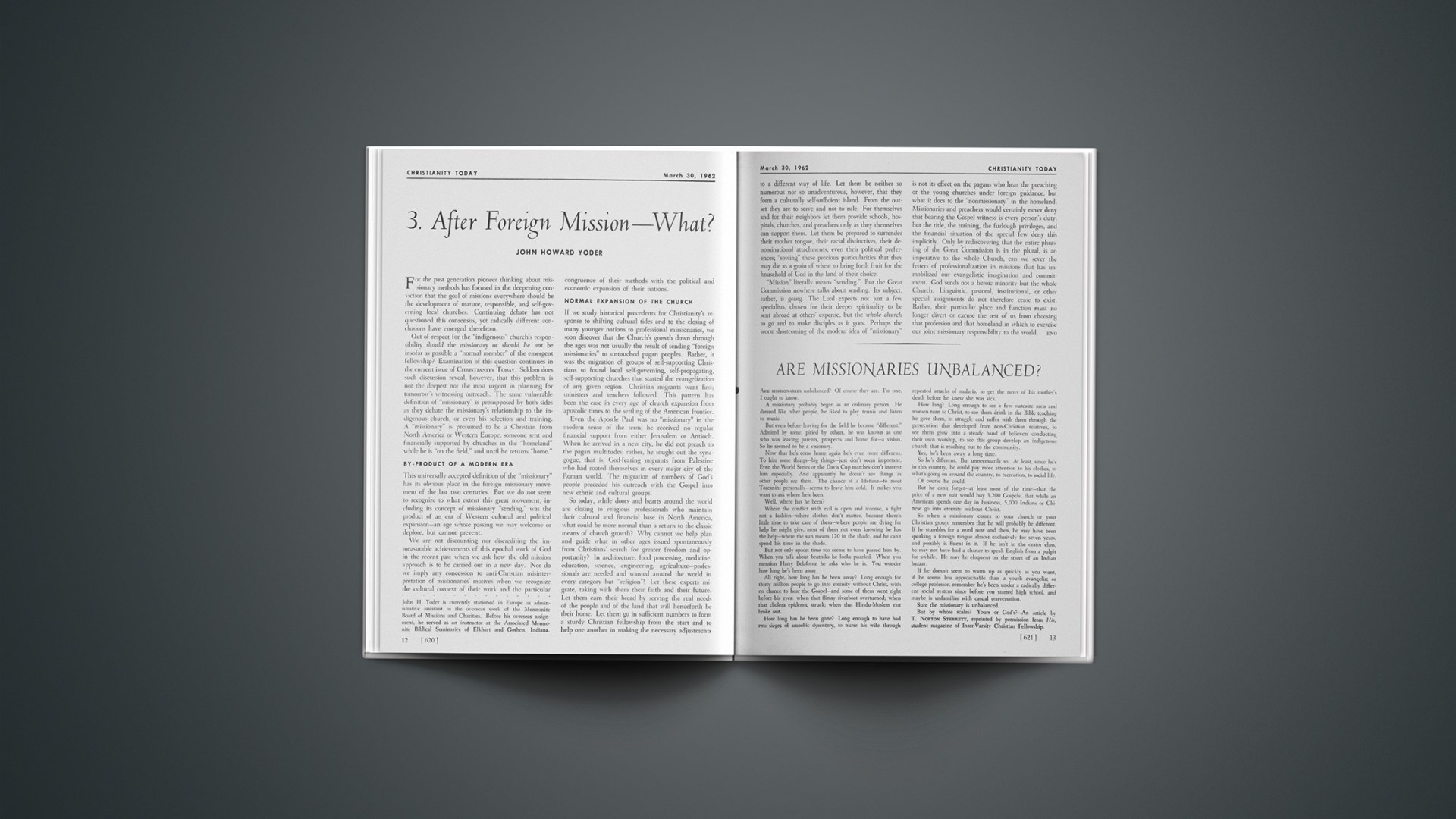Are missionaries unbalanced? Of course they are. I’m one. I ought to know.
A missionary probably began as an ordinary person. He dressed like other people, he liked to play tennis and listen to music.
But even before leaving for the field he became “different.’ Admired by some, pitied by others, he was known as one who was leaving parents, prospects and home for—a vision. So he seemed to be a visionary.
Now that he’s come home again he’s even more different. To him some things—big things—just don’t seem important. Even the World Series or the Davis Cup matches don’t interest him especially. And apparently he doesn’t see things as other people see them. The chance of a lifetime—to meet Toscanini personally—seems to leave him cold. It makes you want to ask where he’s been.
Well, where has he been?
Where the conflict with evil is open and intense, a fight not a fashion—where clothes don’t matter, because there’s little time to take care of them—where people are dying for help he might give, most of them not even knowing he has the help—where the sun means 120 in the shade, and he can’t spend his time in the shade.
But not only space; time too seems to have passed him by. When you talk about beatniks he looks puzzled. When you mention Harry Belafonte he asks who he is. You wonder how long he’s been away.
All right, how long has he been away? Long enough for thirty million people to go into eternity without Christ, with no chance to hear the Gospel—and some of them went right before his eyes: when that flimsy riverboat overturned; when that cholera epidemic struck; when that Hindu-Moslem riot broke out.
How long has he been gone? Long enough to have had two sieges of amoebic dysentery, to nurse his wife through repeated attacks of malaria, to get the news of his mother’s death before he knew she was sick.
How long? Long enough to see a few outcaste men and women turn to Christ, to see them drink in the Bible teaching he gave them, to struggle and suffer with them through the persecution that developed from non-Christian relatives, to see them grow into a steady band of believers conducting their own worship, to see this group develop an indigenous church that is reaching out to the community.
Yes, he’s been away a long time.
So he’s different. But unnecessarily so. At least, since he’s in this country, he could pay more attention to his clothes, to what’s going on around the country, to recreation, to social life.
Of course he could.
But he can’t forget—at least most of the time—that the price of a new suit would buy 3,200 Gospels; that while an American spends one day in business, 5,000 Indians or Chinese go into eternity without Christ.
So when a missionary comes to your church or your Christian group, remember that he will probably be different. If he stumbles for a word now and then, he may have been speaking a foreign tongue almost exclusively for seven years, and possibly is fluent in it. If he isn’t in the orator class, he may not have had a chance to speak English from a pulpit for awhile. He may be eloquent on the street of an Indian bazaar.
If he doesn’t seem to warm up as quickly as you want, if he seems less approachable than a youth evangelist or college professor, remember he’s been under a radically different social system since before you started high school, and maybe is unfamiliar with casual conversation.
Sure the missionary is unbalanced.
But by whose scales? Yours or God’s?—An article by T. NORTON STERRETT, reprinted by permission from His, student magazine of Inter-Varsity Christian Fellowship.










